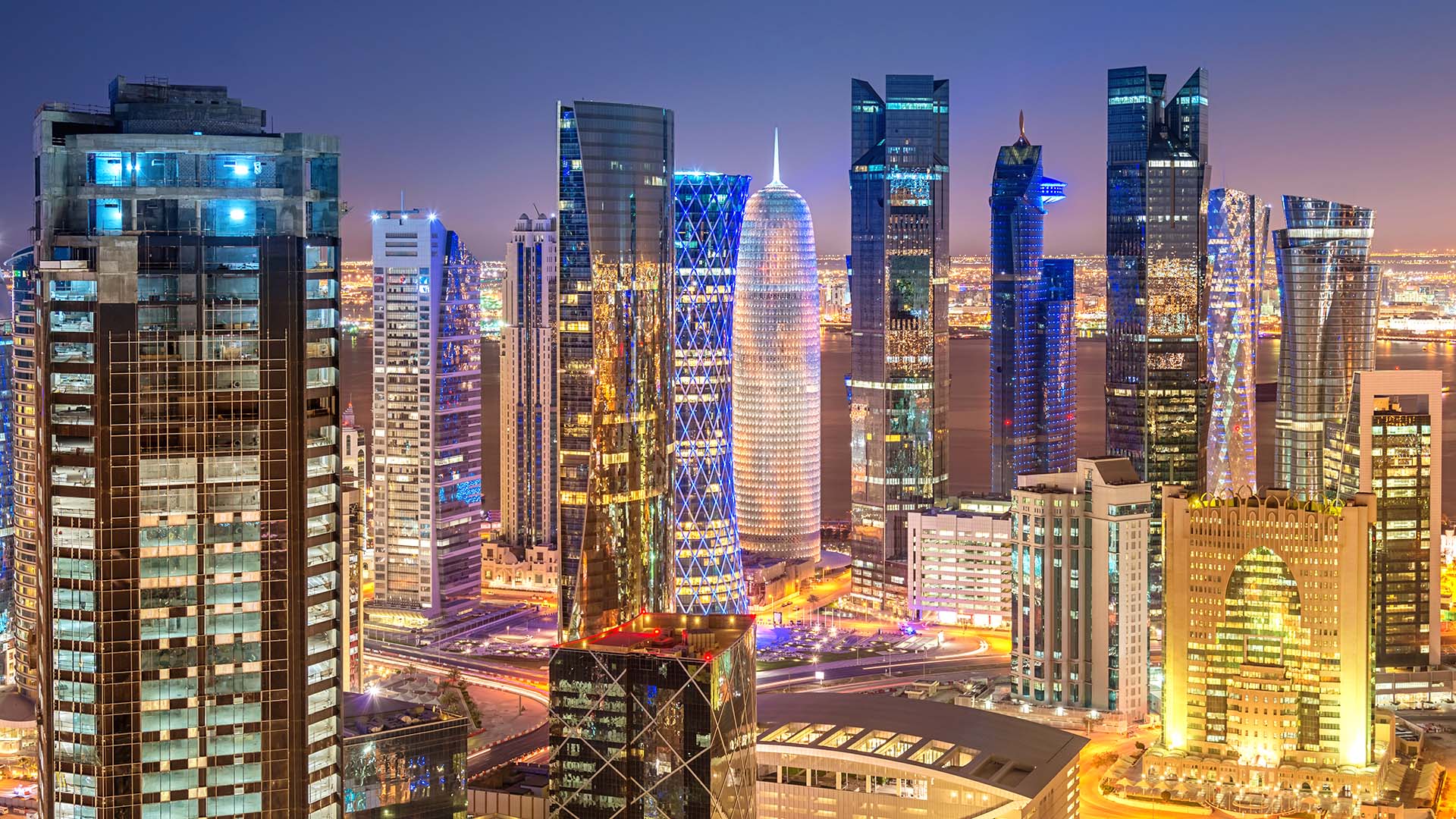Quick Guide
Qatar’s mild winters make Doha an excellent destination between November and March, with temperatures hovering around 75 F (25 C). Summers are positively sweltering with high humidity levels; follow locals indoors to one of Doha’s shopping malls, amusement parks or movie theaters.
Visas
All nonresident travelers entering Qatar are required to show a passport. U.S. nationals do not require visas for stays of up to 30 days — they will be granted a visa on arrival, which can be extended for another 30 days.
Money
Local currency is the riyal. ATMs are widely available and take international cards. Credit cards are accepted in most places, including contactless payments and Apple or Google Pay. Prices are fixed in most shops, but you can try your luck in the stalls at the souk.
Travel Health
Check with Qatar’s Ministry of Public Health for the latest health safety information, including travel protocols and requirements like negative COVID-19 tests, quarantines, mask mandates and more in connection with COVID-19. Before traveling, research and prepare for what to do if you get sick while away.
Getting Here
Doha is served by Hamad International Airport (DOH). Taxis are readily available at the exit, or hail a ride on one of the apps available in the city. Most hotels offer airport transfers or shuttles.
Getting Around
Doha’s sleek new metro system covers the city and surroundings and is convenient transportation for many shopping malls and attractions. Taxis (cash only) roam the city, though most residents use ride-hailing apps like Uber or Careem. Walking is possible in parts of the city such as the Pearl and the Corniche.
Local Lingo
Arabic is the official language in Qatar and Doha, although English is widely spoken — and often will get you further in hotels and touristy areas where staff is mostly foreign. Basic Arabic expressions such as salaam alaikum, often shortened to salaam (greetings), shukran (thank you) and kefik (How are you?) are always appreciated when interacting with locals.
Must-Have Apps
Uber, Careem, Qatar Rail, Talabat
Insider Tip
The Museum of Islamic Art is a must-visit in its own right with its fascinating collection of traditional pieces, but its unofficial jewel is the ground-floor café and its unparalleled views over the bay. Linger here with some karak tea and a pistachio cookie and take it all in.
Qatar’s mild winters make Doha an excellent destination between November and March, with temperatures hovering around 75 F (25 C). Summers are positively sweltering with high humidity levels; follow locals indoors to one of Doha’s shopping malls, amusement parks or movie theaters.
Visas
All nonresident travelers entering Qatar are required to show a passport. U.S. nationals do not require visas for stays of up to 30 days — they will be granted a visa on arrival, which can be extended for another 30 days.
Money
Local currency is the riyal. ATMs are widely available and take international cards. Credit cards are accepted in most places, including contactless payments and Apple or Google Pay. Prices are fixed in most shops, but you can try your luck in the stalls at the souk.
Travel Health
Check with Qatar’s Ministry of Public Health for the latest health safety information, including travel protocols and requirements like negative COVID-19 tests, quarantines, mask mandates and more in connection with COVID-19. Before traveling, research and prepare for what to do if you get sick while away.
Getting Here
Doha is served by Hamad International Airport (DOH). Taxis are readily available at the exit, or hail a ride on one of the apps available in the city. Most hotels offer airport transfers or shuttles.
Getting Around
Doha’s sleek new metro system covers the city and surroundings and is convenient transportation for many shopping malls and attractions. Taxis (cash only) roam the city, though most residents use ride-hailing apps like Uber or Careem. Walking is possible in parts of the city such as the Pearl and the Corniche.
Local Lingo
Arabic is the official language in Qatar and Doha, although English is widely spoken — and often will get you further in hotels and touristy areas where staff is mostly foreign. Basic Arabic expressions such as salaam alaikum, often shortened to salaam (greetings), shukran (thank you) and kefik (How are you?) are always appreciated when interacting with locals.
Must-Have Apps
Uber, Careem, Qatar Rail, Talabat
Insider Tip
The Museum of Islamic Art is a must-visit in its own right with its fascinating collection of traditional pieces, but its unofficial jewel is the ground-floor café and its unparalleled views over the bay. Linger here with some karak tea and a pistachio cookie and take it all in.
Did You Know?
Whale sharks, the world’s biggest fish, are usually hard to see in the wild — but Qatar is one of the best places to try; every year they roam Doha’s coast by the hundreds.
Marriott Bonvoy Offers & Promotions
Enjoy exclusive offers on hotels stays and experiences in Qatar
Offers
Where to Stay
Book Over 30 Hotel Brands Around the World
10 Hotels
10


















